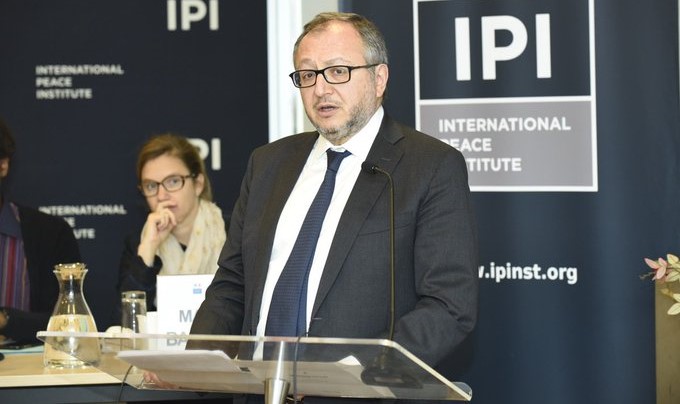How Muslim clerics are helping members stay away from drug abuse

According to one imam, Friday sermons are ideal venues for raising awareness on drug users' need to modify their behaviour.
In recent weeks, Muslim clerics in both North Eastern and Coastal counties have made clear their stand against the sale and consumption of muguka and miraa in the regions, prompting uproar from the producers of the drugs but again rekindling the conversation on the role the religion has played in reducing drugs consumption amongst its adherents.
From lessons contained in spirited mosque lectures to in-person warnings on the dangers of drug abuse, the holy Quran is explicit in its teachings that,“Every intoxicant is haram.”
More To Read
- Somalia miraa market shrinks sharply as Kenya’s exports drop by 17 per cent
- Miraa Bill sparks debate over public health concerns, livelihoods in Wajir
- Kilifi North MP Owen Baya withdraws controversial Muguka Bill after DP Kindiki meeting
- Muguka farmers face uncertain future as new Bill seeks delisting
- 10 counties, including Garissa, Mombasa flagged as hotspots for youth substance abuse
- Muslim Advisory Council demands disbandment of Waqf commission selection panel
Religion’s key role in shaping human behaviour is seen as key in addressing challenges resulting from factors contributing to drug and substance abuse, such as poor parenting, peer pressure, and at times, even idleness.
Sheikh Amin Abdi from Thika notes that Islam’s teachings remind members to protect five key aspects of moral life.
One of which is the human brain, the organ in the body that is speedily affected by drug and alcohol consumption within minutes of consumption.
“Without a properly functioning brain, an individual can literally not do anything, and so we explain the importance of protecting the brain and the effects that drug consumption has on it so that they can avoid it, for those that have not started,” he said.
According to the Imam, individuals are drawn to religious venues and settings to hear spiritual teachings, making mosques and, particularly, Friday sermons perfect locations for sensitising behaviour change among those who are currently using drugs.
“While targeting the young, we also initiate programmes that they like, such as retreats and team building activities, and as they bond, we slot in talks and awareness campaigns against drug use and abuse. If we find affected persons, we schedule counselling sessions with each victim, getting an Imam to attend to them daily until they change, as we refer extreme cases to rehab,” said the Imam.
Alarming reports
The focus on young people is key, as the latest statistics from the National Authority for the Campaign Against Alcohol and Drug Abuse (NACADA) show that the minimum age for tobacco use in Kenya has dropped to six years, alcohol seven years, cannabis eight years, khat nine years, prescription drugs eight years, heroin 18 years, and cocaine 20 years.
“Alcohol continues to be the most widely used substance of abuse in Kenya among the 15-65 age category, and there is an increasing demand for cheaper and readily available alcoholic products, especially chang’aa, traditional brews, and portable spirits,” stated NACADA in its strategic plan (2024–2028).
“I remember not long ago having addressed two to three cases that were not extreme. I had daily sittings with them, monitored them, and helped them form new friendships with time to help them get past the group that initially pressured them into drugs,” said the imam.
In November last year, Jamia Mosque Imam Sheikh Jamaludin Osman warned parents over drug (muguka and bhang, alias hashish) peddling in South C by young men seeking to lure young children over the school holiday.
“There are young men that are peddling drugs in South C, Ola Petrol station in Bellevue, they are found in Mugoya shopping centre, they are found here at the total petrol station in South C, they are found near Al Jazeera apartments, near Akiba shopping centre, on the pedestrian foot track on the route starting from container Masjid Salam, CID, Al Jazeera apartments,” he said in his teaching on November 23.
Sheikh Jamaludin further warned of the growing misuse of over-the-counter and prescription drugs.
“We need to wake up, you cannot say you want righteous children if they are influenced by friends and people. As a parent, you need to know who are the friends of your children,” he added.
Around the same time, Mohammed Skanda, Coordinator of Muhuri Lamu, revealed that one out of every four people seeking healthcare in Lamu is dealing with mental health issues caused by substance misuse.
He called for coordinated efforts among security, religious, and health leaders to address the challenge in the county.
Triple threat
Earlier this year, NACADA arranged a conference with the Supreme Council of Kenya Muslims (SUPKEM) and the Association of Pentecostal and Evangelical Clergy of Kenya (Apeck), recognising religions' critical role in averting the crisis.
“The three threats we face in Kenya are terrorism, banditry, and alcohol and drug abuse. Unlike the first two threats, this fight is not won by guns or uniforms. It is fought through religious motivation, understanding, emotional support, and care,” NACADA CEO Anthony Omerikwa said.
Afghanistan, a predominantly Muslim country, had been the world's greatest producer and exporter of opiates (heroin and methamphetamine) since the 1980s, accounting for more than 80 per cent of the world's opium until recently, when the government ceased drug production and sale.
In April 2022, the Taliban announced a ban on the cultivation, production, and trafficking of all drugs, leading to a drastic decline in the opium economy in the country and a drastic decline in the income available to farmers.
The Taliban explained the ban was because of the harmful effects of opium, which is taken from poppy seed capsules, and because it goes against their religious beliefs.
The 2022 ban included the use, transportation, sale, trading, import, and export of all sorts of drugs, including alcohol, heroin, shisha (methamphetamine), tablet K, hashish, and all other narcotics, as well as drug-producing plants. Anyone who fails to comply with the ban will face Sharia procedures.
The ban is expected to have a positive impact on the country’s drug use and abuse "crisis,” which has exposed young Afghans to mental health problems.
The World Health Organization (WHO) estimates show that around 2.9 million people abuse drugs in Afghanistan, while nine million have mental health issues in a population of around 38.3 million.
Top Stories Today















































